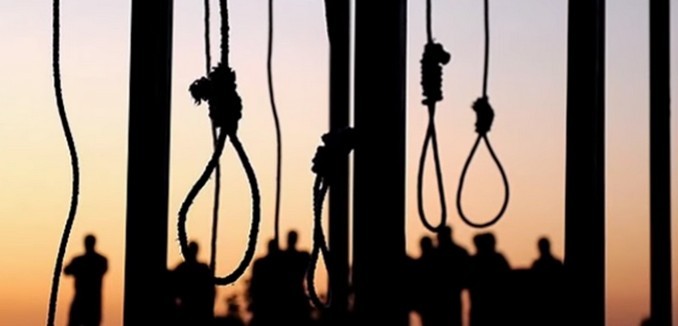Ahmed Shaheed, the United Nations Special Rapporteur on the situation of human rights in the Islamic Republic of Iran, issued an unedited report (.pdf) today that “provides a picture of the prevailing situation” of human rights in Iran. This is his first report since October 2013.
One of the areas examined by Shaheed is the “Right to Life.”
At least 753 individuals were reportedly executed in 2014 (the highest total recorded in the past 12 years). This includes the execution of 25 women and 53 public executions. Nearly half of all executions — 362 — were for drug-related crimes (not including those drug related offenses that were also committed in conjunction with homicide crimes) , which do not meet the internationally accepted threshold of “most serious crimes” required for use of the death penalty. In at least four cases the families of homicide victims provided pardons only after authorities implemented the death penalty by hanging. In these instances, authorities ceased the execution and lowered individuals after a period of suspension.
The report notes that Iran’s latest penal code provides for the execution of minors (with some exceptions).
The increase in executions under Iranian president Hassan Rouhani, who was elected in August 2013, isn’t surprising. One of his earliest appointments was tapping Mostafa Pour-Mohammadi to serve as justice minister. Pour-Mohammadi is known as “Minister of Murder” for his role in thousands of summary executions that were carried out at the behest of Ayatollah Ruhollah Khomeini in the late 1980’s.
Shaheed’s second area of investigation was the right to a fair trial. The report observes that “most violations of fair trial standards reportedly occur during the investigation phase.” The trial of Reyhaneh Jabbari, who was executed in October for killing a man who attempted to rape her, was marked by serious questions about its fairness.
Shaheed compiled his report after interviewing Iranians in exile and reviewing “information contained in open letters, confidential communications; news reports and broadcasts produced by domestic media outlets in the country; official statements; information relayed in Government responses to Special Procedure mandate holders’ inquiries; national and civil society stakeholder reports submitted for the Islamic Republic of Iran’s first and second UPR reviews; and reports submitted to the Special Rapporteur by credible human rights organizations.”
Iran responded to Shaheed’s charges by claiming that “the existence of the mandate of the Special Rapporteur is politically motivated and illegitimate.”
While Shaheed credited the Iranian government for answering some of his questions, he criticized the government for refusing his requests “for visits to the country to deepen dialogue with government officials and to further ascertain the veracity of complaints forwarded to the Special Procedures remain unaddressed.” Iran, similarly, does not allow International Atomic Energy Agency inspectors to view certain areas where it is reported to have carried out nuclear research.
Last year, the European Parliament passed a resolution blasting the approach of negotiating a nuclear deal with Iran while ignoring human rights issues, and “forcefully proclaimed human rights will not be relegated to the back seat of foreign relations while the negotiations proceed.”
[Photo: Ali Goli / YouTube ]




